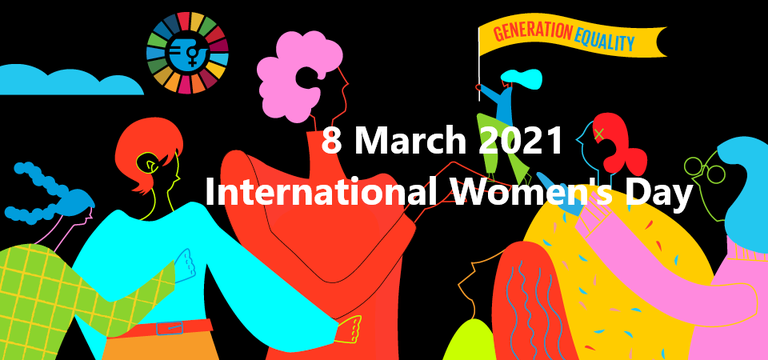Women in leadership: Achieving an equal future in a COVID-19 world.
This is the theme selected by the UN Women for the 2021 edition of International Women’s Day (IWD). This theme celebrates the great efforts by women and girls around the world in shaping a more equal future and recovery from the COVID-19 pandemic.
Gender mainstreaming as defined by the 1997 agreed conclusions of ECOSOC refers to integrating a gender perspective in national and international public and private organizations, in central and local policies, and in services and sectoral programmes. Gender equality is the overarching and long-term goal, while gender mainstreaming is a set of specific, strategic approaches as well as technical and institutional processes adopted to achieve that goal.
Gender is woven into the UNEP/MAP mandate. Indeed, UNEP/MAP and the Contracting Parties to the Convention for the Protection of the Marine Environment and the Coastal Region of the Mediterranean (Barcelona Convention) have made clear commitments to the advancement of gender equality and women’s empowerment. There is a recognition of women’s key role in promoting a healthy, clean, sustainable and climate resilient Mediterranean Sea and Coast, contributing to sustainable livelihoods and enhancing benefits for all, men and women, boys and girls.
In line with the UNEP Policy and Strategy on Gender Equality and Women’s Empowerment, gender equality has been recognized as a driver of sustainable development for populations around the Mediterranean and a key element of the required transition to sustainability and resilience in the region.
Promoting sustainable development through the implementation of the 2030 Agenda and the Sustainable Development Goals is at the heart of the UNEP Mediterranean Action Plan’s vision under the Barcelona Convention, in particular SDG 5 that focuses specifically on achieving gender equality and empowering all women and girls because achieving women’s full, equal and meaningful participation is critical for the achievement of Agenda 2030 as an indivisible whole. This seminal notion underpins the delivery of the UNEP/MAP mandate in the Mediterranean region.
The meaningful engagement of the female gender for the effective implementation of the Barcelona Convention and its Protocols can benefit a greener renaissance in the Mediterranean region and pave the way for the pro-sustainability recovery from COVID-19 that the UNEP/MAP-Barcelona Convention Secretariat has been advocating since spring 2020.
The State of the Environment and Development in the Mediterranean (SoED) report, released by UNEP/MAP and its Regional Activity Centre Plan Bleu in October 2020, provided important insights into gender equality in the region. A recognized and implemented gender equality could allow women to fully play their role in the green economy, through green jobs and entrepreneurship and a sustainable brand of economic development that would not come at the expense of nature. As managers of household budgets, women can play an important role in promoting sustainable household consumption and investment; their lifestyle and purchasing decisions on behalf of the household can have sweeping implications for lifestyle, food, agriculture and energy. But unfortunately, as the report notes, obstacles still lie on the road to achieving full gender equality in the Mediterranean region.
Therefore it would be necessary and urgent to reduce gender gaps in order to benefit from the potential of women in the Mediterranean. Indeed, according to the SoED report, the gender gap index in the Mediterranean countries varies from 20% to 43%, compared to 31% worldwide. As regards women’s political empowerment, the Global Gender Gap Index is 75%, whereas in the Mediterranean region, where the situation is particularly difficult for women, the gap is between 47% and 91%. A sinkhole of this magnitude impedes women’s participation in decision-making processes related to sustainable resource management and environmental protection.
Socially constructed gender roles result in different attitudes towards the environment and different opportunities for women and men to act as agents of environmental change (cf. UNEP Global Gender and Environment Outlook 2016).
Achieving gender equality and women’s empowerment as agents of change, as reflected in the 2030 Agenda for Sustainable Development, is essential for transformative change needed for a green renaissance - a recovery from COVID-19 that would shift the Mediterranean region’s collision course with nature towards a path of sustainability and resilience.

